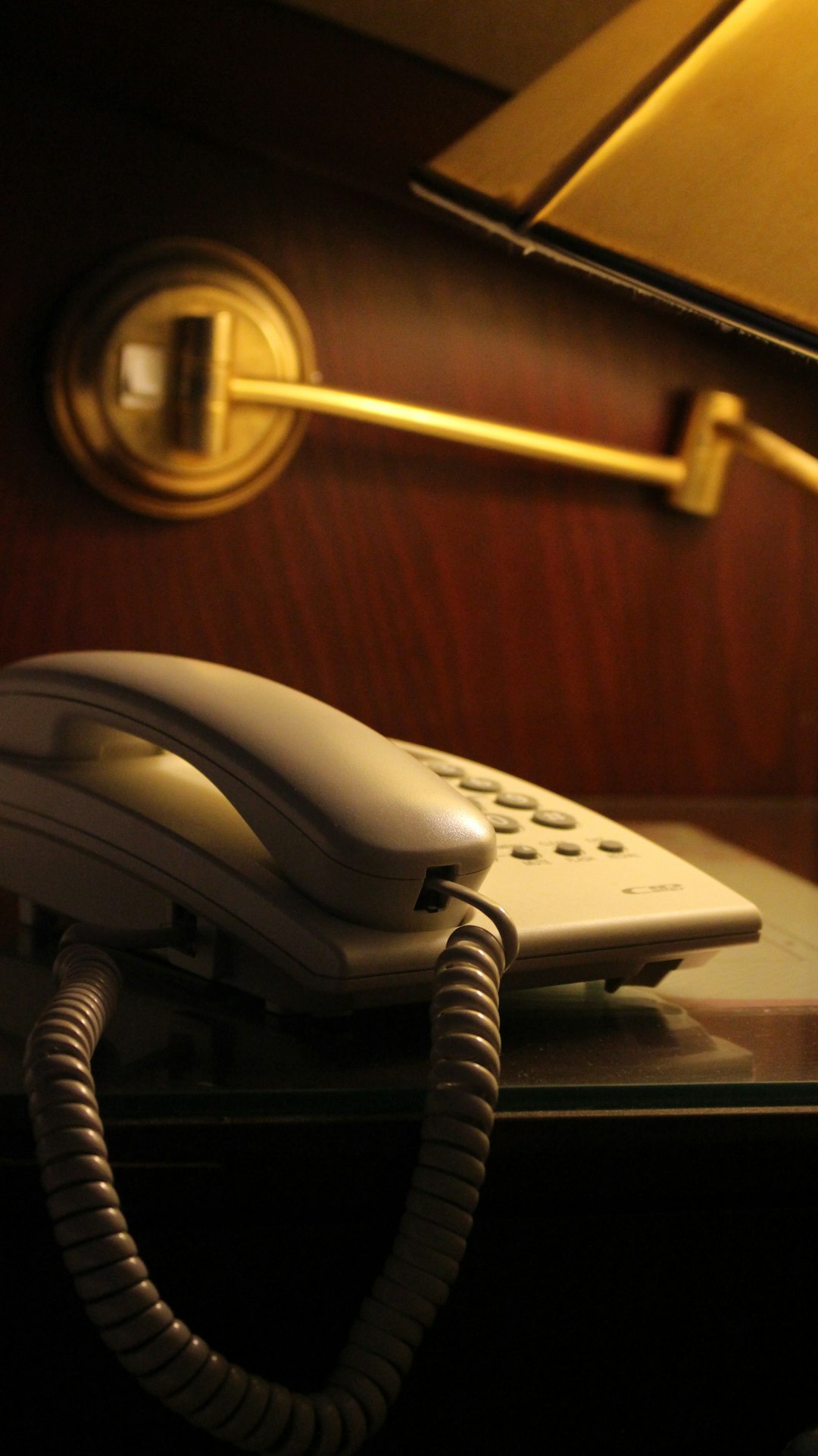In Ohio, the Telephone Consumer Protection Act (TCPA) protects consumers from unwanted automated or prerecorded calls (robocalls). If you've received such calls without consent, you can take legal action. Engaging a specialized robocall lawyer in Ohio is advisable to understand your rights and seek compensation for harassment or financial losses. To sue, prove the calls used automated voices and were made without your consent. Key terms include Can I Sue For Robocalls Lawyer Ohio, robocall lawyers Ohio, and law firm for robocalls Ohio.
In Ohio, the Telephone Consumer Protection Act (TCPA) safeguards consumers from unwanted phone marketing and robocalls. If you’re facing persistent or unauthorized calls, understanding your rights is crucial. This article guides you through navigating the TCPA in Ohio, including when and how to sue for robocalls. We explore key aspects like identifying violators, choosing the right lawyer (robocall attorney/law firm Ohio), filing a lawsuit (step-by-step guide), common defenses, and potential damages. Empower yourself with knowledge – know if you can sue for robocalls with a lawyer Ohio.
- Understanding the Telephone Consumer Protection Act (TCPA) in Ohio
- Your Rights Against Robocalls and Unsolicited Phone Marketing
- When Can You Sue for Robocalls? Legal Thresholds and Requirements
- Choosing the Right Lawyer: What to Look for in a Robocall Attorney in Ohio
- The Process of Filing a Lawsuit for Robocalls: Step-by-Step Guide
- Common Defenses Against Robocall Lawsuits and How to Overcome Them
- Awarding Damages and Injunctions: What You Can Recover from a Robocall Suit
Understanding the Telephone Consumer Protection Act (TCPA) in Ohio
In Ohio, the Telephone Consumer Protection Act (TCPA) is a federal law designed to protect consumers from unwanted telephone solicitations and robocalls. If you’ve received automated or prerecorded calls that are harassing or causing you distress, you may have rights under the TCPA. This act prohibits companies from making such calls without prior express consent, ensuring your privacy and peace of mind.
If you’re wondering, “Can I sue for robocalls in Ohio?” the answer is yes. There are specific legal avenues to pursue if you’ve been a victim of unauthorized or abusive robocalling. Engaging a lawyer who specializes in TCPA cases—a robocall lawyer or attorney in Ohio—can help you understand your rights and guide you through the process of seeking compensation for any harassment or financial loss incurred due to unwanted calls.
Your Rights Against Robocalls and Unsolicited Phone Marketing
In Ohio, as across the nation, consumers are protected by the Telephone Consumer Protection Act (TCPA), which limits the number of automated or prerecorded calls – commonly known as robocalls – that companies can place to promote their goods and services. This law also restricts unsolicited phone marketing, giving you substantial rights to protect your privacy from unwanted calls. If you’ve been a victim of frequent robocalls or received marketing calls in violation of the TCPA, you have options. You may be entitled to seek compensation for each violation through a lawsuit, including damages and attorney fees, against the companies responsible.
Hiring a lawyer specializing in TCPA litigation can help you understand your rights and navigate the legal process if you choose to take action. Robocall lawyers, attorneys, or law firms in Ohio are equipped to handle these cases, ensuring you receive the justice and reimbursement you deserve for any nuisance or financial loss caused by unwanted phone calls. Don’t hesitate to reach out to a reputable robocall attorney in Ohio if you’re facing persistent or malicious robocalls or other violations of your TCPA rights.
When Can You Sue for Robocalls? Legal Thresholds and Requirements
If you’ve been receiving unwanted and annoying robocalls in Ohio, you might be wondering if you have any recourse or if you can take legal action. The good news is that you may have rights under the Telephone Consumer Protection Act (TCPA) to sue for robocalls. However, there are specific legal thresholds and requirements that must be met before taking such actions.
To file a lawsuit for robocalls in Ohio, you’ll need to prove two key elements. First, you must show that the calls were automated or used an artificial or prerecorded voice—a clear indication of a robocall. Second, you have to demonstrate that these calls were made without your prior express consent. If you can gather evidence and establish both points, it becomes easier for a court to rule in your favor and award damages as per the TCPA regulations. Consulting with a qualified robocall lawyer Ohio or robocall attorney Ohio from a reputable law firm Ohio specializing in consumer protection law is crucial to understanding your rights and exploring legal options, including potential compensation for harassment, loss of sleep, or any emotional distress caused by these unwanted calls.
Choosing the Right Lawyer: What to Look for in a Robocall Attorney in Ohio
When considering whether to take legal action against unwanted robocalls, choosing the right lawyer is a crucial step. In Ohio, seeking counsel from a qualified robocall lawyer or robocall attorney who specializes in telecommunications law is essential. Look for an experienced professional with a proven track record of successfully handling cases related to the Telephone Consumer Protection Act (TCPA).
Reputable robocall law firms in Ohio should have a deep understanding of consumer rights and the latest legal developments surrounding robocalls. They must be adept at navigating complex regulations, such as those set by the TCPA, to ensure clients receive fair compensation for any violations. Additionally, consider attorneys who offer a free consultation and have a transparent billing process, allowing you to make an informed decision about pursuing legal action without financial burden.
The Process of Filing a Lawsuit for Robocalls: Step-by-Step Guide
If you’re receiving harassing or unauthorized robocalls in Ohio, you may wonder if you can sue for robocalls. The first step is to determine whether your rights under the Telephone Consumer Protection Act (TCPA) have been violated. If you believe a company or individual has made automated calls to your phone without your prior consent, you have legal recourse.
The process of filing a lawsuit for robocalls involves several steps:
1. Identify the Violation: Document each robocall incident, including the caller’s information, if possible, and the date and time of the call. Keep a record of any messages left.
2. Consult with a Lawyer: Speak to a robocall lawyer or attorney specializing in TCPA law in Ohio. They can advise you on whether your case has merit and guide you through the legal process, including the possibility of seeking damages for each violation as well as injunctive relief to stop future calls. A reputable law firm focusing on robocalls will help protect your rights and pursue compensation if appropriate.
Common Defenses Against Robocall Lawsuits and How to Overcome Them
Many telephone consumers in Ohio believe they cannot sue for robocalls, but there are several legal avenues available to those who have been harassed by automated phone calls. Common defenses against robocall lawsuits often revolve around claims of consent or lack thereof. However, these defenses can be overcome with solid evidence. If you did not give explicit permission for your number to be used in telemarketing activities, any subsequent automated call is a violation of your rights under the Telephone Consumer Protection Act (TCPA).
To strengthen your case as a plaintiff, maintain detailed records of the robocalls received, including timestamps, call duration, and any recorded conversations. Additionally, providing documentation that demonstrates your number was added to the National Do Not Call Registry can be instrumental in refuting consent claims. Retaining a qualified robocall lawyer Ohio or attorney Ohio who specializes in TCPA litigation is also crucial for navigating complex legal procedures and ensuring your rights are protected throughout the process.
Awarding Damages and Injunctions: What You Can Recover from a Robocall Suit
If you’ve been subjected to unwanted and harassing robocalls in Ohio, you may be wondering if you have legal recourse. The good news is that you absolutely can take action against these automated calls through a lawsuit under the Telephone Consumer Protection Act (TCPA). This federal law grants consumers significant protections from telemarketing practices deemed intrusive or unlawful.
When pursuing a robocall suit, there are several forms of damages and injunctive relief available to you as a victim in Ohio. You may be eligible to recover monetary damages for each violation, which can include actual damages, statutory damages up to $500 per call, and treble damages in cases of willful or knowing violations. In addition, a court can order the offending company to cease and desist from making robocalls, ensuring your future peace of mind by preventing further harassment. Engaging with a lawyer specializing in TCPA cases, such as a robocall lawyer or attorney in Ohio, is crucial to navigating this process successfully and recovering the compensation you deserve.






